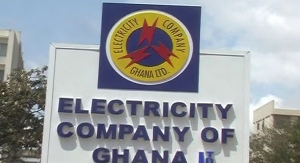The Statistical Department of the Akuapem North Municipal Assembly has rolled out the Phase 1 of the Ghana 2024 Integrated Business Establishment Survey I (IBES I) with a call on businesses to avail themselves to ensure that their names are captured in the business register to inform economic development decisions.
To this end, the assembly has deployed enumerators across the municipality to collect data on existing businesses.
The Ghana 2024 IBES I is an Economic Census that would enumerate small, medium and large business units irrespective of location, size and legal status.
Phase I starts in January 2024 and will be followed by Phase II in June 2024.
The Akuapem North Municipal Statistician and District Lead for 2024 IBES, Mr. Saede Caesar who made the call in an interview assured businesses in the municipality that the exercise was not for tax purposes but strictly for statistical use only.
He therefore urged businesses to provide the right information to make the exercise achieve its intended objective.
According to him, the Statistical Service Act 2019(Act 1003) emphasizes confidentiality of information collected as such all data would be treated as such.
Mr. Caesar emphasized that the goal of his outfit is to ensure that Akuapem North Municipal becomes one of the business-centred support centre for all businesses within the municipality.
Therefore, he said the goal is to nurture business growth and provide intervention programmes based on the characteristics of businesses that will be discovered at the end of the national exercise.
"We want to achieve 100 percent coverage as far as this exercise was concerned so no business would be left unregistered", he said.
He mentioned that his outfit has embarked on a wide range of public sensitization by giving information jingles to churches, community information centres and local radio stations where interviews have been granted on the exercise.
So far, he said, mobile registration has been completed where business hubs at locations such as Adorsu and Mamfe roundabouts were registered.
Furthermore, he said, to avoid leaving any business unregistered, businesses are engaged one-on-one especially those in the rural areas who do not get opportunity to access the regular means of publicity.
Mr. Caesar explained that though cooperation from businesses was slow from scratch, the situation was picking up gradually.
Regional News of Tuesday, 6 February 2024
Source: Francis Cofie, contributor

















